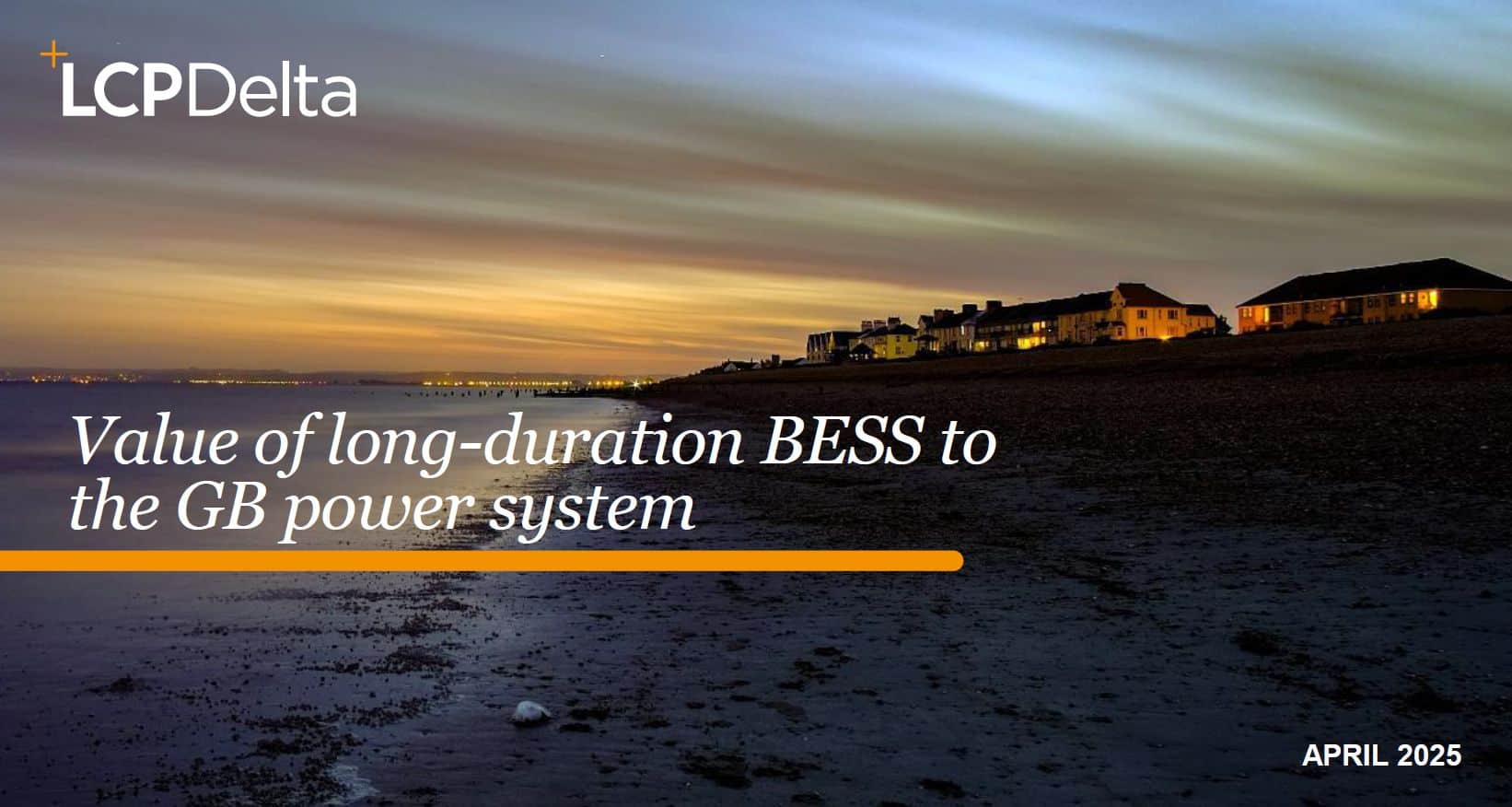April 2025
April 2025
Open letter to Ofgem, Government, DESNZ and NESO from the Battery Storage Industry:
Ofgem’s Long-Duration Energy Storage (LDES) proposed legislation introduces biases against BESS which could cost consumers £2.2 billion, based on research by LCP Delta.
We represent the UK’s largest battery storage businesses in the UK with a collective 1.9GW / 3.1GWh of capacity, 37% of the UK’s 5.3GW operational capacity. Batteries are an essential part of our future clean energy system with up to 27GW of battery storage required in the Clean Power 30 (CP30) target. By providing key flexibility services, they avoid wasting clean electricity while keeping the system reliable and low cost for consumers.
A report by LCP Delta confirms that lithium-ion batteries (BESS) are the most competitive LDES technology and could save the consumer £2.22bn compared with other technologies.
In January 2024, the Government intended to exclude BESS from a new LDES Cap and Floor revenue scheme in its consultation launched by DESNZ, favouring other less efficient technologies despite the clear advantages BESS offer. Despite being subsequently included, it is clear barriers to entry remain for BESS based on the recent LDES Technical Decision Document (TDD) published by Ofgem in March 2025.1
The LCP Delta analysis sets out concerns that BESS will be prejudiced against due to the lack of a level playing field; these are summarised below. It is consumers who will pay higher costs for the resulting inefficiency:
- Unintended consequences risk BESS build out by 20%: The LDES Cap & Floor scheme distorts the market for shorter duration BESS as these have no revenue support while LDES projects will. This support directly impacts bidding behaviours and pricing in markets. LCP Delta estimate this will cause a 12% reduction in operating margin for shorter duration BESS. By subsidising up to 7.7GW of LDES assets, DESNZ and Ofgem risk jeopardising the Government’s 27GW target for shorter duration battery deployment in its Clean Power 2030 plans.
- BESS is a more cost effective way to meet long duration storage requirements: DESNZ’s prior analysis is underpinned by outdated cost assumptions dating back to 2020. The bias towards Pumped Storage Hydro (PSH) in the LDES TDD is despite LCP Delta’s analysis proving BESS are cost competitive at 12-hour durations or longer – using start-of-2024 battery prices. Battery prices have dropped by c.40%. As such BESS projects are very likely to be competitive at durations including >20hour projects.
- BESS can be installed in two years while PSH requires at least seven years, and other technologies are not yet commercially viable. With renewable penetration at >50% today and rising rapidly through 2030, LDES is needed now to reduce balancing costs for consumers; BESS can achieve this.
- BESS construction is not geographically constrained unlike PSH which is installed in remote locations – around Loch Ness for example – requiring costly network extensions.
- BESS impacts its environment much less per unit of energy storage installed than PSH, reducing the environmental impact of the overall storage requirement.
- BESS has significantly higher round trip efficiency of 85-90% vs 70-75% for PSH. Lower losses from batteries mean less overbuild of renewable generation to compensate for losses, in turn reducing costs for consumers. Unproven technologies such as liquid air storage are yet to demonstrate round-trip efficiencies comparable to BESS.
- Renewable energy needs to be stored as quickly as it released. BESS can charge and discharge at the same rate.
- PSH is vulnerable to dry weather periods that limit its ability to charge / discharge and this could become more common in a changing climate.
We support a level playing field allowing BESS to deliver to its potential and reduce consumer costs, especially at a time that public finances under pressure and increasing domestic energy costs. Our industry has adopted BESS over other technologies as they are the most reliable, commercially viable and cost-effective technology, and with the greatest potential for lower costs through continued rapid innovation.
As experienced investors who have invested billions in the energy transition, we are clear that the alternative – Government trying to pick winners – sends a signal that the UK is closed for inward investment and fair competition.
Yours faithfully
Ben Guest
Managing Director, Gresham House Energy Transition
Peter Kavanagh
CEO, Harmony Energy
James Basden
Founding Director, Zenobē
Amit Gudka
CEO, Field Energy
Elias Saba
CTO, Eku Energy
James Mills
Managing Director, Adaptogen Capital
Russell Alton
CEO, Voltwise Power
- Ofgem has been appointed by DESNZ to manage the LDES Cap and Floor scheme.
Read the report >>

 Gresham House
Specialist asset management
Gresham House
Specialist asset management






